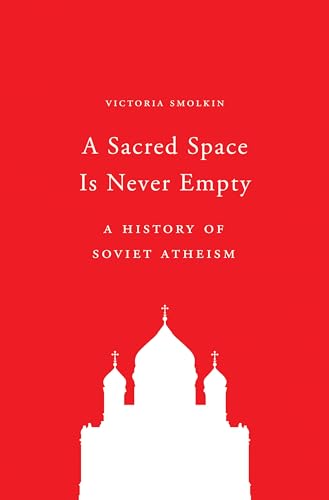A sacred space is never empty :
by Smolkin, Victoria,
Published by : Princeton University Press (Princeton) Physical details: xvi, 339 pages : illustrations ; 25 cm ISBN:9780691174273; 069117427X.| Item type | Current location | Collection | Call number | Status | Date due | Barcode | Item holds |
|---|---|---|---|---|---|---|---|
 Books
Books
|
JST Library General Stacks | BJ Ethics |
BL 2765.S65 SMO (Browse shelf) | Available | 107601 |
Includes bibliographical references (pages 303-332) and index.
The religious front : militant atheism under Lenin and Stalin -- The specter haunting Soviet Communism : antireligious campaigns under Khrushchev -- Cosmic enlightenment : Soviet atheism as science -- The ticket to the Soviet soul : Soviet atheism as worldview -- "We have to figure out where we lost people" : Soviet atheism as social science -- The Communist Party between state and church : Soviet atheism and socialist rutuals -- The socialist way of life : Soviet atheism and spiritual culture -- Utopia's orphan : Soviet atheism and the death of the Communist project.
"When the Bolsheviks set out to build a new world in the wake of the Russian Revolution, they expected religion to die off. Soviet power used a variety of tools--from education to propaganda to terror--to turn its vision of a Communist world without religion into reality. Yet even with its monopoly on ideology and power, the Soviet Communist Party never succeeded in overcoming religion and creating an atheist society.A Sacred Space Is Never Empty presents the first history of Soviet atheism from the 1917 revolution to the dissolution of the Soviet Union in 1991. Drawing on a wealth of archival material and in-depth interviews with those who were on the front lines of Communist ideological campaigns, Victoria Smolkin argues that to understand the Soviet experiment, we must make sense of Soviet atheism. Smolkin shows how atheism was reimagined as an alternative cosmology with its own set of positive beliefs, practices, and spiritual commitments. Through its engagements with religion, the Soviet leadership realized that removing religion from the "sacred spaces" of Soviet life was not enough. Then, in the final years of the Soviet experiment, Mikhail Gorbachev--in a stunning and unexpected reversal--abandoned atheism and reintroduced religion into Soviet public life.A Sacred Space Is Never Empty explores the meaning of atheism for religious life, for Communist ideology, and for Soviet politics."--



There are no comments for this item.